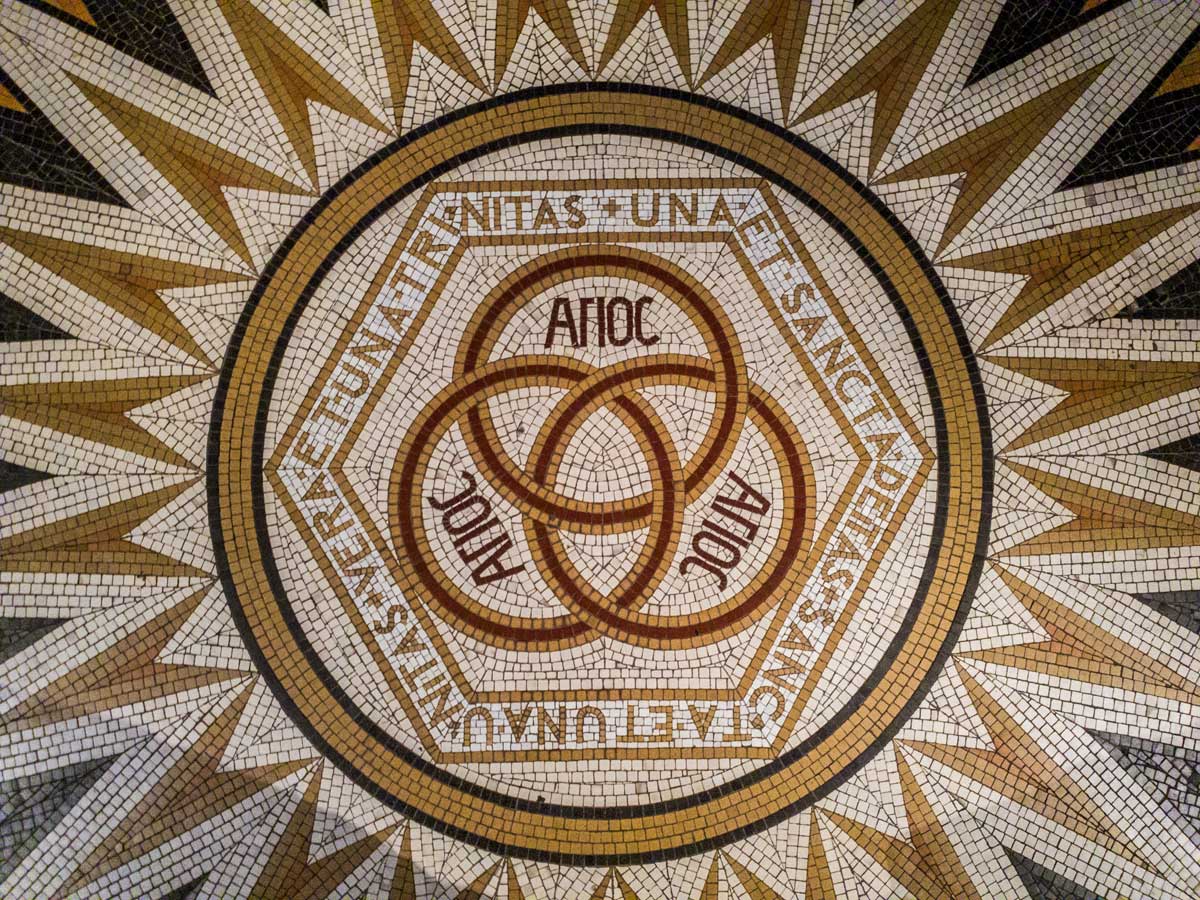Editorial
The Man Alive
Irenaeus Did Not Teach Self-Fulfillment
Reviewing conversations with Christians over the past half-century or so, I am impressed by how often I have heard quoted a line from Irenaeus of Lyons: "the glory of God is man fully alive." Normally it would be encouraging to hear a wide variety of Christians quoting a second-century church father and martyr, especially so prolific and effective an opponent of every heresy that plagued the churches of his day. But in the case of this quotation, its popularity arises from a radical misreading, and this misreading explains a lot about what is wrong with American Christianity at present.
How did this come about? The greater part of Irenaeus's largest work, A Treatise Against the Heresies, is devoted to the refutation of second-century Gnostic writers, whose philosophical and religious speculations may strike the modern reader as bizarre beyond consideration. Yet, Irenaeus took those fellows seriously; he studied their writings in depth and refuted them in meticulous and painstaking detail. Regarding Gnosticism as spiritually dangerous to the Christian souls for whom he was responsible, he fulfilled that task of refutation with self-sacrificing pastoral love.
A Skewed Translation
Irenaeus is not easy to read straight through; at least, I have found this to be the case. When I finished my first complete reading of the Adversus Haereses several decades ago, my chief sentiment was admiration for the author's patience in studying, and then refuting, so much theological nonsense. Because the lunacy of his opponents makes many pages of Irenaeus a bit tedious—especially in the first half of the work—it has occurred to me to wonder, from time to time, whether all those who quote Irenaeus have actually read him. This impression comes with special force when I consider that the alleged quotation—"the glory of God is man fully alive"—doesn't appear until fairly late in the Adversus Haereses; it is found in the middle of book 4, chapter 20.

Unfortunately, the original Greek text of that passage was not preserved, so we know it only in ancient translations, the most important being Latin. This is where we have to start. The traditional Latin of the quotation cited above reads, "Gloria Dei est vivens homo." The literal translation is, "the glory of God is a living man."
And here arises a problem. The popular translation, "man fully alive," seems to indicate that God is glorified in what today would be called "human fulfillment" or "self-fulfillment." Indeed, whenever I have heard these words cited, this has always been, I believe, the intended sense of the person citing them. And such an understanding of Irenaeus—I am about to insist—is disingenuous and misleading at best. Irenaeus is not talking about "human fulfillment."
Nonetheless, this mistranslation is so prevalent that we find it in places where its use can only be regarded as deceptive, even mendacious. I cite one example, the English translations of the Catechismus Catholicae Ecclesiae. The original Latin of this Vatican document (#294) accurately quotes the traditional text of Irenaeus and then goes on to explain that it refers to the life of the Word Incarnate. That is to say, the "living man" intended by Irenaeus is Christ himself, in whose life we believers contemplate the Father's glory revealed in the Son.
"Vita hominis visio Dei," Irenaeus goes on to say; "the life of a man is the vision of God." In the life of the man Jesus, believers behold the glory of God shining on the face of his Son. The Vatican document has it right, but both English versions (1992 and 1997) reflect an unfortunate and skewed reading of Irenaeus.
The Cult of Self-Fulfillment
Patrick Henry Reardon is pastor emeritus of All Saints Antiochian Orthodox Church in Chicago, Illinois, and the author of numerous books, including, most recently, Out of Step with God: Orthodox Christian Reflections on the Book of Numbers (Ancient Faith Publishing, 2019).
subscription options
Order
Print/Online Subscription

Get six issues (one year) of Touchstone PLUS full online access including pdf downloads for only $39.95. That's only $3.34 per month!
Order
Online Only
Subscription

Get a one-year full-access subscription to the Touchstone online archives for only $19.95. That's only $1.66 per month!
bulk subscriptions
Order Touchstone subscriptions in bulk and save $10 per sub! Each subscription includes 6 issues of Touchstone plus full online access to touchstonemag.com—including archives, videos, and pdf downloads of recent issues for only $29.95 each! Great for churches or study groups.
Transactions will be processed on a secure server.
more from the online archives
calling all readers
Please Donate
"There are magazines worth reading but few worth saving . . . Touchstone is just such a magazine."
—Alice von Hildebrand
"Here we do not concede one square millimeter of territory to falsehood, folly, contemporary sentimentality, or fashion. We speak the truth, and let God be our judge. . . . Touchstone is the one committedly Christian conservative journal."
—Anthony Esolen, Touchstone senior editor










